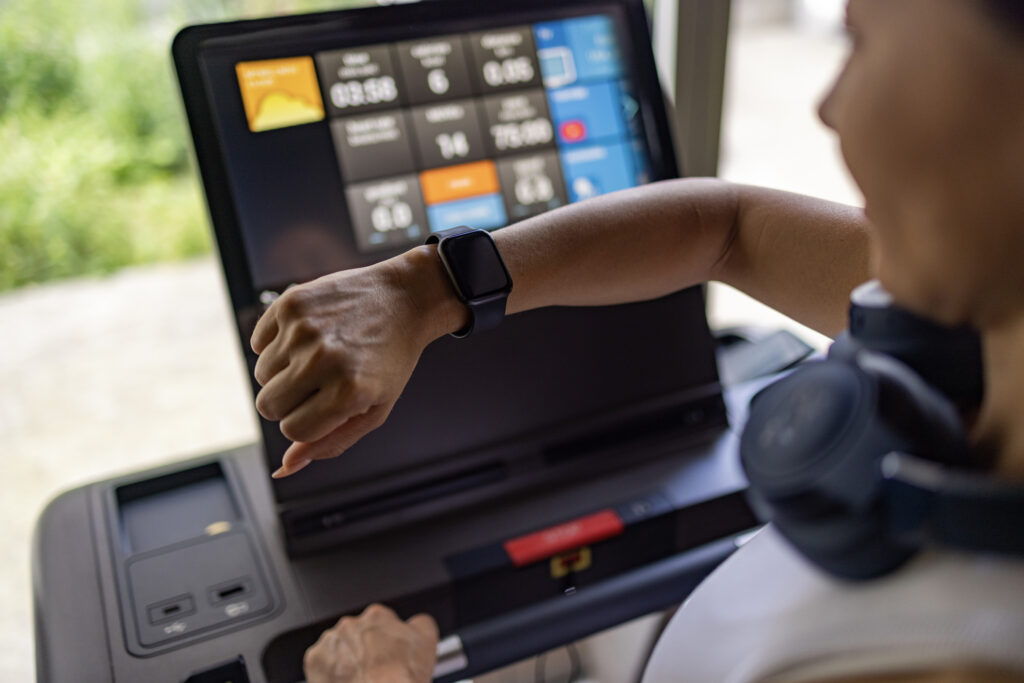
Table of Contents
ToggleI. Introduction
In today’s tech-driven world, fitness aficionados naturally seek to amplify their exercise routines with technological innovations. This fusion of fitness and technology has led to remarkable progressions, notably with artificial intelligence (AI) spearheading customized training protocols. Here, we explore the dynamic relationship between fitness and technology, honing in on the transformative impact of AI on personalized training methods. This article scrutinizes the symbiosis between fitness and technology, shedding light on the paradigm shift catalyzed by AI in the realm of tailored workout experiences.
II. Understanding Personalized Training
Personalized training is the art of customizing workout routines to suit individual needs and objectives. In the past, this process relied on manual assessments and generic plans. However, AI-based approaches have revolutionized personalized training by harnessing the power of data analytics and machine learning algorithms. This enables the creation of tailored workout plans with remarkable precision. The advantages of personalized training go beyond mere efficiency; they include improved performance, reduced risk of injury, and overall satisfaction. By catering to specific requirements, personalized training ensures that individuals achieve their fitness goals effectively and enjoyably.
III. Role of AI in Fitness
AI is revolutionizing the fitness landscape, leveraging extensive datasets to provide tailored insights and recommendations. By analyzing biometric data and tracking workout patterns, AI algorithms meticulously craft personalized training programs. Platforms such as Peloton and Fitbit epitomize this fusion of AI and fitness, delivering real-time feedback, adaptive workouts, and customized recommendations. Through the seamless integration of AI technology, users can optimize their fitness routines with precision and efficiency, enhancing performance and overall well-being.
IV. Advantages of AI in Personalized Training
The integration of AI in personalized training offers significant benefits. Firstly, it enhances precision in workout planning and scheduling, guaranteeing that each session is tailored to the individual’s specific goals and capabilities. Secondly, the real-time feedback and adjustments facilitated by AI algorithms not only optimize performance but also mitigate the risk of injury. Lastly, AI-powered motivation and accountability features play a crucial role in ensuring consistency and commitment to fitness objectives, thereby transforming fitness routines into sustainable habits. This integration marks a paradigm shift in the way individuals approach fitness, making it more accessible and effective for everyone.
V. Challenges and Limitations
While the prospects of integrating AI into personalized training are enticing, hurdles obstruct its seamless implementation. Chief among these obstacles are privacy and data security apprehensions, given AI’s heavy reliance on personal data for analysis. Moreover, accessibility and affordability pose significant barriers to widespread adoption, with advanced AI platforms often out of reach for many. Additionally, the presence of inherent biases in AI algorithms sparks concerns regarding the fairness and inclusivity of personalized training programs. These challenges underscore the need for meticulous consideration and vigilance as AI continues to reshape the fitness landscape.
VI. Future Trends and Possibilities
The future of fitness and technology holds exciting prospects for seamless integration and groundbreaking innovation. AI advancements are poised to deepen their integration with wearable tech and smart devices, facilitating effortless tracking and insightful analysis of biometric data. Moreover, the potential influence of AI within the fitness industry transcends individualized training programs. It extends to areas such as gym management, virtual coaching platforms, and fostering community engagement. This evolution promises a landscape where technology not only enhances personal fitness journeys but also revolutionizes the way we manage and engage with fitness on a broader scale.
VII. Case Studies and Success Stories
To better understand the practical applications of AI in personalized training, let’s explore some compelling case studies and success stories.
1. Peloton
The Peloton platform utilizes AI to deliver personalized workout experiences through its connected fitness equipment. By analyzing user data such as heart rate, cadence, and workout history, Peloton’s AI algorithms generate tailored workout recommendations and adjust resistance levels in real-time. This dynamic approach to personalized training has garnered widespread acclaim, with users reporting significant improvements in performance and motivation.
2. Fitbit
As a pioneer in wearable fitness technology, Fitbit harnesses the power of AI to provide users with comprehensive health and fitness insights. From tracking activity levels to monitoring sleep patterns, Fitbit’s AI algorithms offer actionable recommendations for achieving personal wellness goals. Moreover, the integration of AI in Fitbit’s coaching platform enhances user engagement and facilitates long-term behavior change.
3. Nike Training Club
Nike’s Training Club app combines AI technology with expert guidance to deliver personalized workout routines tailored to individual fitness levels and goals. Through interactive workouts and adaptive training plans, users receive real-time feedback and motivation to maximize their potential. With a vast library of exercises and customizable programs, Nike Training Club exemplifies the versatility and effectiveness of AI in personalized training.
VIII. Conclusion
The fusion of fitness and technology has ushered in a new era of personalized training, with AI at the forefront of innovation. By harnessing the power of data analytics and machine learning, AI algorithms are revolutionizing the way we approach fitness, offering tailored solutions that optimize performance and promote well-being. As AI continues to evolve and permeate the fitness industry, the possibilities for personalized training are limitless. Embracing technology in our fitness journey empowers us to achieve our goals with precision and purpose, unlocking our full potential along the way. Let us embrace the synergy between fitness and technology, and embark on a journey of transformation and growth.
FAQs
Q1: What is personalized training in fitness?
A1: Personalized training tailors workout plans to individual goals and abilities, maximizing effectiveness and results.
Q2: How does AI improve personalized training?
A2: AI analyzes data like workout history and biometrics to create tailored workout plans and offer real-time feedback.
Q3: Are there privacy concerns with AI in fitness?
A3: Yes, there are concerns about personal data security and how it’s used in AI algorithms for personalized training.
Q4: How accessible is AI-based fitness technology?
A4: Accessibility varies, with some AI platforms requiring expensive equipment or subscriptions, limiting widespread use.
Q5: What’s the future of AI in fitness?
A5: The future includes deeper integration with wearable tech, more personalized coaching, and broader impacts on the fitness industry.
